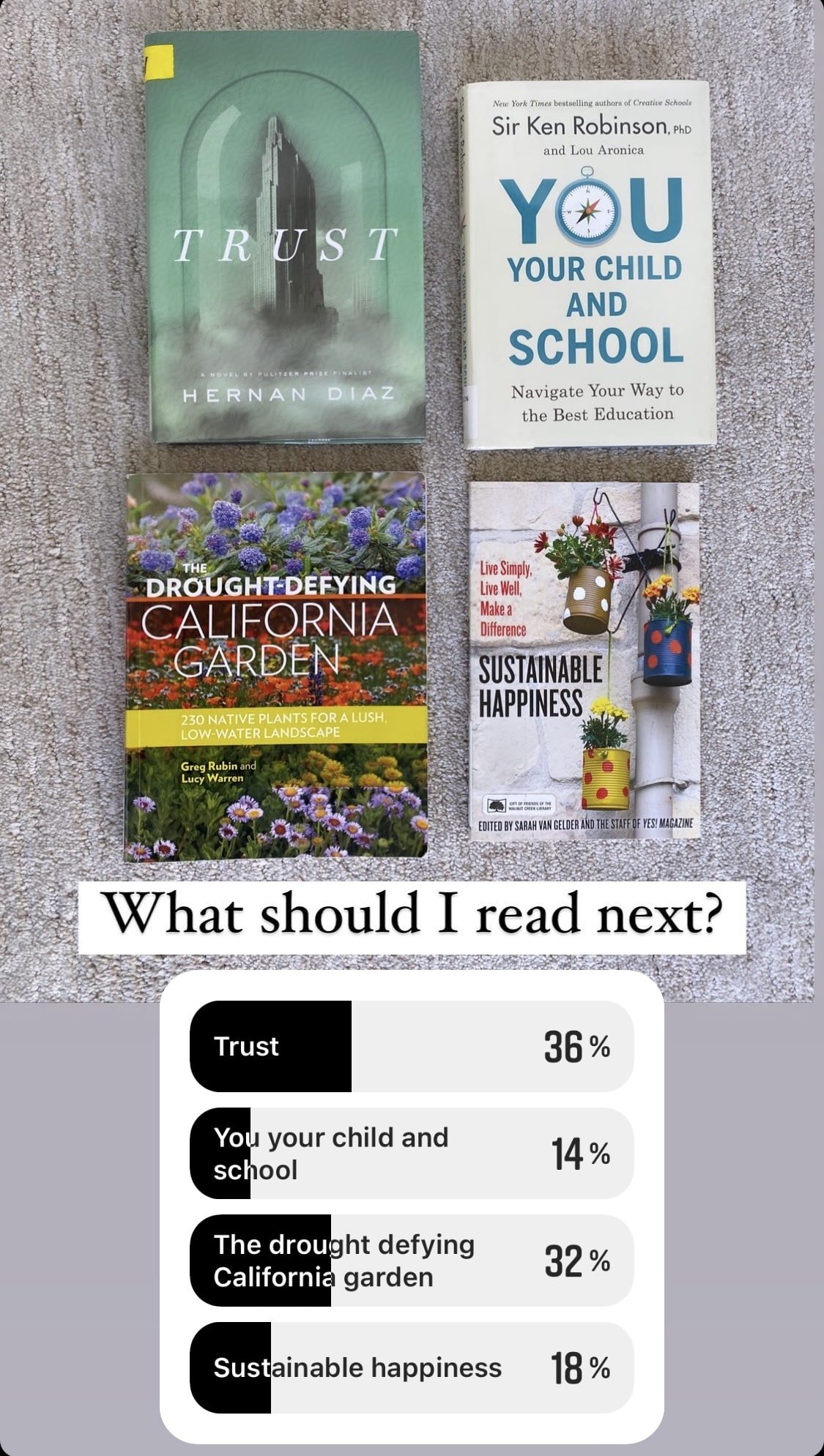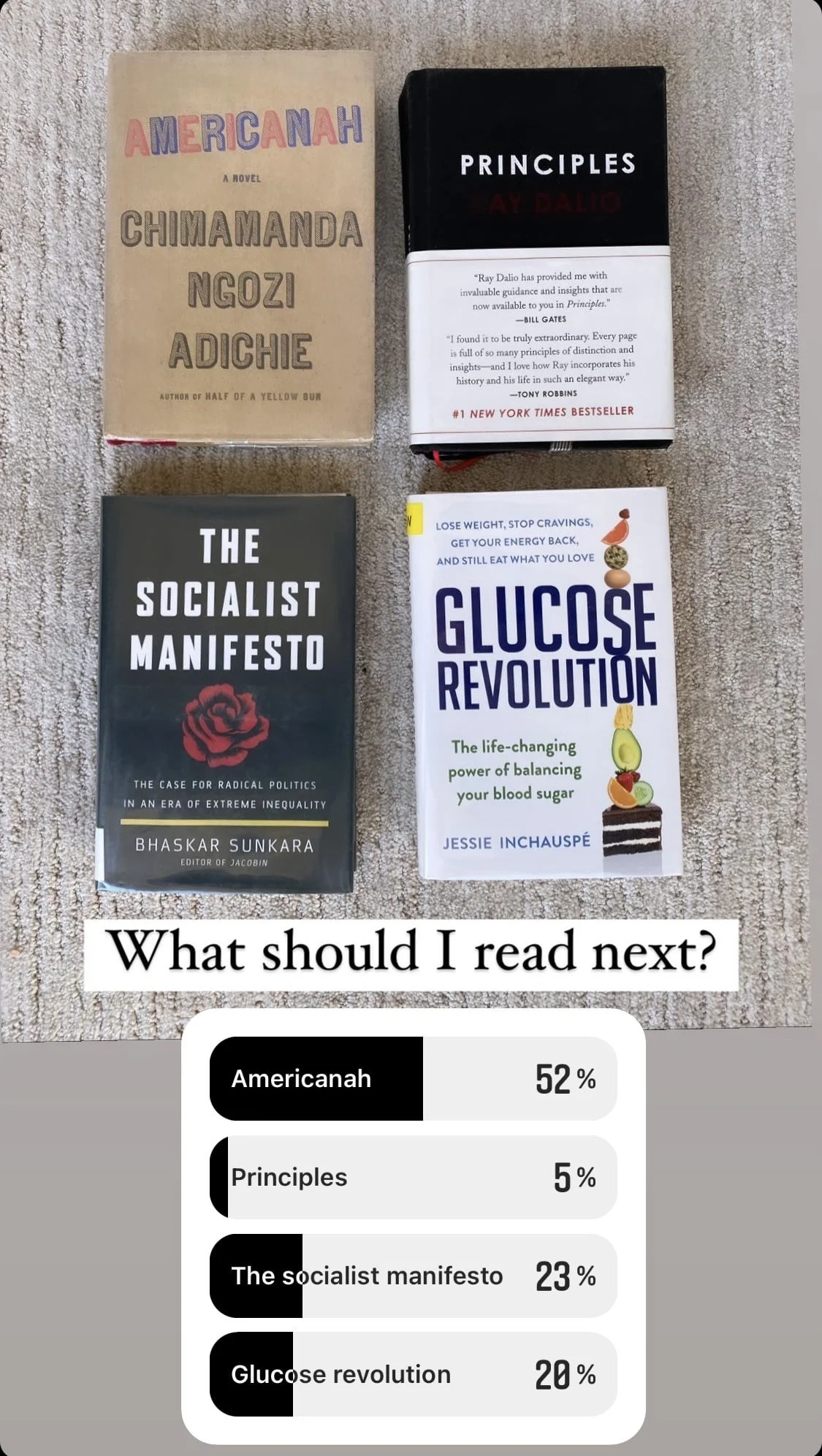I didn’t read a lot of book this month, and sadly of the ones I’ve read I didn’t really love any of them. But I think the most “useful” book for me this month was Glucose Revolution and do recommend it for anyone who struggles with their energy levels.
Sustainable Happiness: This was a collection of essays about sustainability/conservation and happiness. It didn’t really meld the two topics so much as just address both. But I enjoyed this quick read and I took away some great lessons and quotes (one that I used here for work). Another favorite is: “Seeing with grateful eyes requires that we see the web of interconnection in which we alternate between being givers and receivers. The humble person says that life is a gift to be grateful for, not a right to be claimed.”
You Your Child and School by Sir Ken Robinson: I was a fan of Robinson’s when I saw his TED talk. And now that I have a child going to preschool and we’re looking into kindergartens I thought I would read some of his books, starting with the latest. Overall it gave me some good high level pointers of what to look for in a school (curriculum, teachers, assessments, environment, and culture). Having gone to a religious private school myself K-12, even though the teachers and curriculum were excellent I’m shying away from a religious school for Emi. Anyway I think it’s worth a read if you have a child starting school or maybe a kid who’s not a fan of their current school and you’re looking to switch.
The Drought-Defying California Garden: I looked through this book but I realized I’m not really the type to hunt down a specific plant because of a book (I’m more like the person who will pick up a drought tolerant plant at my local garden shop or nursery). But I also realized Flavia (the woman who owned my current home for 40 years before we bought it) must have read up on this too because many of her plants (and now my plants) in the backyard are straight out of this book. This is a great book if you’re looking to add more drought tolerant plants to your garden.
Glucose Revolution: by Jessie Inchauspe: I was a bit hesitant to read this book because I didn’t want to read a “diet book” but I’m happy to say this is not. Inchasupe, the author, makes this a fun and educational read that has changed my eating habits for the better. As she says, “We should be looking for sustainable lifestyles, not diets, and there is space on all our plates for a little bit of everything— even sugar.” She gives tips to controlling our blood glucose (preventing glucose spikes) which also helps to control cravings, mood swings, and even weight. I follow her on her Insta, Glucose Goddess, so you can find her tips there. The ones I found most helpful were to: 1) eat veggies first (and always eat carbs last) and eat sweets as a dessert and not a snack. I 100% recommend this non-diet book for everyone and I learned quite a bit myself. Having changed my diet for the last two weeks (mostly by adding veggies before every meal) the biggest change I’ve noticed is that I don’t have that “I need a nap” feeling as often as I used to.
Indistractable by Nir Eyal: I liked this book well enough though it wasn’t mind-blowing. I mean there are some great tips (timeboxing your schedule, making pre-commitments, tagging email to be either addressed “Today” or “sometime this week”). But TBH I haven’t really picked up a lot from it. The author also mentions that mindfulness is a great tool for preventing distractions (and being “Indistractable” as he puts it), but says he won’t go over that since it’s been done “ad nauseam” (his words). And then he proceeds to tell us the best way to prevent distractions is to notice the triggers of distraction (usually a response to avoid pain), which are all mindfulness techniques 🤷🏻♀️. Maybe this book will be more helpful to those who are currently being pulled in many directions at once. Overall the book was a great refresher for me on how to remain focused on the tasks at hand (but I mostly use techniques that I garnered from other books).
Out of Our Minds: The Power of Being Creative by Sir Ken Robinson: Since I thought Robinson’s book You Your Child and School was alright, I thought I might try another one of his books, this one. Well, big mistake. I slogged through this out of sheer stubbornness (if I make it to a certain point in a book I feel compelled to finish it). But I did not enjoy it and had to skim some parts due to boredom. This book reads more like a history of education and it wasn’t what I signed up for. I think in terms of actually fostering creative habits the books Louder Than Words (reviewed last month) and Steal like an Artist were more helpful.

